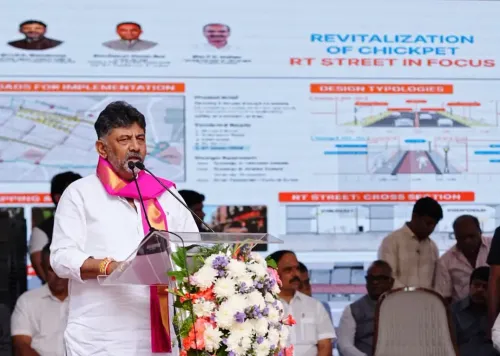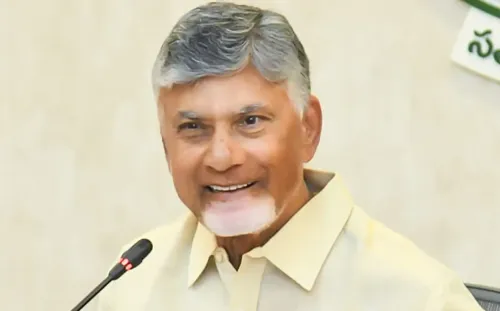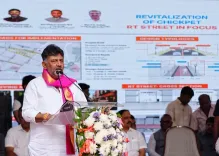Did Munir’s missile rhetoric in the US reveal Pakistan’s rogue nature?

Synopsis
Key Takeaways
- Pakistan's military leadership is under pressure.
- Munir's threats reflect internal and external insecurities.
- Geopolitical relations are complex and evolving.
- India maintains a strategic response to threats.
- The rhetoric could further strain regional stability.
New Delhi, Aug 11 (NationPress) India has strongly criticized the recent remarks made by Pakistan Army chief Field Marshal Asim Munir during an event in the US. Speaking in Tampa on Sunday, Munir issued a threat to obliterate any Indian infrastructure that could affect water flow into Pakistan.
"We will bide our time until India constructs a dam, and when that happens, we will annihilate it using ten missiles," he stated, while also delivering a nuclear warning.
Munir’s comments are not only in poor taste but also reflect his urgent need to maintain relevance in Pakistan. His statements serve as a testament to his role as the de facto leader of a rogue nation armed with nuclear capabilities.
New Delhi has consistently warned of a strong retaliation after each terror attack originating from Pakistan. However, India has refrained from escalating to war, leading Pakistan to mistakenly believe that its nuclear arsenal is a deterrent.
Notably, Operation Sindoor challenged Pakistan’s nuclear posturing, as India successfully targeted several strategic sites within Pakistan and Pakistan-occupied Kashmir (PoK).
It’s significant that Munir chose to deliver this threat while in the US, which is coincidentally a time of improving US-Pakistan relations. Additionally, the Trump administration has engaged with Pakistan over an energy deal.
Munir’s statements are calculated, strategically timed to convey a message. His confidence partly stems from this being his second visit to the US, having been invited for lunch at the White House by President Donald Trump on June 18, a privilege typically reserved for heads of state.
A few months prior, Munir had declared that Kashmir was Pakistan’s “jugular vein” and emphasized the differences between Hindus and Muslims, with that earlier statement being made to the Pakistani diaspora. The only distinction now is that this latest statement was made in the US.
Munir’s threats can also be viewed as a reaction to India exposing Pakistan's nuclear bluff during Operation Sindoor, a tactic aimed at deterring India from further military action.
Security analyst Nitin A Gokhale shared on X, "Mullah Munir’s outburst on American soil is unsurprising. From Ayub to Zia and Musharraf to Munir, each believed the Americans were their true allies, only to find themselves discarded eventually. His nuclear posturing is a response to India calling Pakistan's bluff during Operation Sindoor."
The timing of Munir’s threats coincides with strained relations between India and the US, as Trump has claimed credit for the ceasefire between India and Pakistan, while also imposing a 50 percent tariff on Indian imports and criticizing India’s trade practices and ongoing purchases of Russian oil.
This is a risky maneuver for Munir, who appears to be buoyed by the Trump administration's support. However, his popularity at home remains low.
Despite the bluster, the Pakistani populace understands that during Operation Sindoor, India decisively struck back. Thus, Munir may be attempting damage control.
Furthermore, he faces significant backlash domestically over his handling of the Imran Khan situation.
If Munir believes he has executed a masterstroke, he is mistaken. No responsible nation with nuclear arms would resort to such threats. Ultimately, Munir has illustrated to the world that Pakistan remains a dangerous and unstable state.









